











Jasmine Yu
Heathrow Airport was closed for almost 18 hours on the 21st of March due to a fire outage of a power station in Hayes, leading to electricity shortage for the airport to operate. As of the middle of the day, 1149 flights have been cancelled and 119 flights have been diverted, affecting millions of people from all over the world Not only passengers, but cargo operations have also suffered due to the power outage. This incident could potentially disturb the transport of goods, especially those with critical time-sensitivity such as pharmaceuticals and perishable foods.
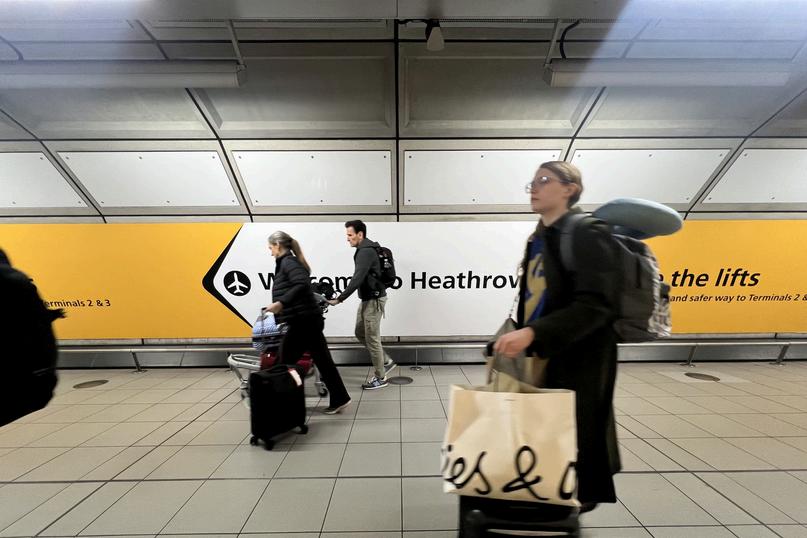
Earlier this year, the airport had its busiest January on record, handling more than 6.3 million passengers, 5% more than the same month last year (2024). This shows that Heathrow plays an important role in the UK economy through different industries and the incident would have caused the UK a significant loss.

By having this incident, it had led to Heathrow having a loss of £4 3 million just on tourism, not even including expenses for passengers, crew accommodation, additional transport, fuel and other costs for the aircraft themselves.
According to Heathrow, every year it handles nearly £200 billion worth of cargo which breaks down to goods priced at £543 million travelling through every day. As the second busiest airport in the world, 230,000 passengers usually use the airport every day but Heathrow is Britain's biggest freight port by value. In 2023, more than £198.5 billion worth of goods passed through the airport more than double every other airport combined and accounting for 70% of all UK air cargo by value

Heathrow Airport Holdings Limited, the company that owns the airport, would have to spend lots of money on the incident in the short term, which might impact its investments on its phase expansion programme to upgrade their terminal buildings for better passenger experience and improve reliance and sustainability.
Economics- What does PepsiCO’s purchase of Poppi mean for competitors: Sophie Park Page 2
PepsiCo has acquired Poppi, a popular prebiotic soda brand, for nearly $2 billion which will have a significant impact on the competitive landscape of the soft drink industry. This move positions PepsiCo as a leader in the fastgrowing beverage market, driven by consumer demand for healthier options.
The addition of a prebiotic soda into PepsiCo’s product range, will give them an edge in the market against competitors This is due to the fact that nowadays consumers are more health conscious and so more likely to opt for a health-oriented beverage option As a result, it allows PepsiCo to place increased pressure on other competitors like Coca Cola, who had recently launched their own prebiotic sodaSimply Pop. This forces competitors to accelerate innovation or consider similar additions to remain competitive Smaller competitors such as Olipop and Culture Pop, will face challenges as PepsiCo increases Poppi's distribution These brands will have to emphasise their unique value in

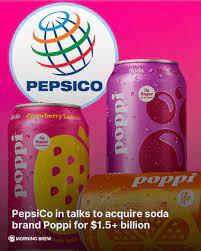


comparison to competitors in the market to maintain market share The move highlights a trend of major beverage companies diversifying through purchases This could prompt competitors to explore similar strategies rather than relying solely on internal development.
The purchase is expected to increase marketing efforts in the health and wellness soda line. As PepsiCo promotes Poppi with its substantial resources and funding, competitors will likely respond with aggressive campaigns This could lead to escalating competition, with brands competing for consumer attention through innovative advertising and educational initiatives.
PepsiCo's purchase of Poppi not only strengthens its position but also raises the stakes for competitors. As the industry adjusts to this game-changing move, we can expect increased activity from other competitors in the market. The future of the beverage industry looks highly focused on health-conscious products, with major brands aiming for dominance in this rapidly evolving sector
In response to Trump’s 25% tariffs on Canadian goods, several Canadian provinces have removed US-made alcohol from store shelves
Tariffs are taxes imposed by one country on goods imported from another country. They are essentially trade barriers that raise prices, reduce available quantities of goods and services for businesses and consumers. Tariffs also create an economic burden on foreign exporters.
Tariffs are typically used by Governments to raise revenue, protect industries within the country, or exert political leverage over another country. They are also used to restrict imports (goods coming into the country) as they increase the price of goods and services purchased from another country, making them less attractive to consumers from the country where the tariffs are placed
Potential Consumer Backlash
Canadian consumers who prefer American brands like Jack Daniel’s or Budweiser now have limited options
Higher prices or fewer choices might frustrate consumers, leading to pressure on policymakers
Supply Chain & Business Disruptions
Restaurants, bars, and liquor retailers relying on U S alcohol must find new suppliers or adjust menus
Distributors handling U S alcohol may lose revenue and jobs
Increased Pressure on U.S. Alcohol Industry
Distilleries, breweries, and vineyards that rely on Canada may have to find alternative export markets or lower production
Some businesses might cut jobs or stop expansion due to lost sales
Potential U S Retaliation
The U S may target Canadian industries (e g , whiskey, wine, or other agricultural products) with its own bans or further tariffs

Isabella Railton

RMS is home to several dynamic Young Enterprise teams, including Buddy Bundle and Cozy & Co. These teams are made up of talented individuals who work together to create unique and innovative businesses What started as just an idea has now grown into a successful and profitable venture
These teams run like they would in the real world, each student having their role, such as managing director, marketing director, production director, etc. With others being members of their teams These students have learned key skills such as management, communication, etc. As well as sales skills, these students have sold to the public in locations such as Rickmansworth markets, Atria and the Eden Centre They are now able to implement these skills into their day-to-day lives and help them in the future As well as gaining knowledge on business, which allows them to be able to apply what they learn in the lessons to the real world, helping these students to consolidate their learning.
They will go through a competition, and our judges will score them out of a total of 500 points. 250 for their business report and 250 for their presentation, comprising 5 categories: The enterprise, Running the business, Impact and legacy, team journey and evidence of 360 degree feedback Within these, there are several sub-categories, some of which include brand and identity, Financial management, Mission and goal setting and lessons


Our teams at RMS:
Buddy Bundle is dedicated to providing a range of creative activity kits designed to encourage children to spend less time on screens in a sustainable way Their mission is to help children develop practical skills, gain independence, and foster stronger family connections through hands-on activities. They offer themed activity boxes - covering everything from gardening to baking - each carefully designed with all the necessary resources to set up a fun, screen-free experience that can be enjoyed time and time again.
Cozy&Co sells handmade beanies made of soft wool for exceptional winter warmth, with fundraiser products such as custom-made keychains for placing the letters you want, as well as Christmas baskets for food and skincare, perfect for Christmas presents We have created a quality product for a competitive price, our customers are impressed with the quality of our beanie’s and like the detachable pom poms (and our in progress development of branding with labels) whilst also helping the environment by creating a beanie made of recycled wool and aims to give wearers in the cold England weather a sense of coziness and most importantly…home.
“Career of the term” in economics or business: Sophie Park Page 5
Are you fascinated by why people make certain financial decisions?
Do you want to explore the psychology behind spending, investing, and economic choices?
Then a career as a Behavioral Economist might be perfect for you!
What Does a Behavioral Economist Do?
Behavioral economists blend psychology and economics to study how people make decisions in real-world situations. They analyse how emotions, biases, and cognitive errors influence everything from personal savings habits to government policy and business strategies.
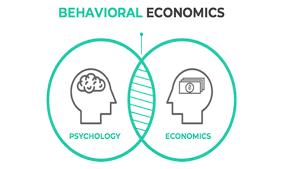
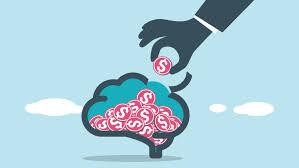
Key Skills Needed
✔ Critical thinking
✔ Data analysis & statistics
✔ Knowledge of psychology & human behavior
✔ Strong communication & research skills
to Get Started
Education – A degree in economics, psychology, or behavioral science (Master’s or PhD preferred)
Gain Experience – Intern with economic research firms, financial companies, or government agencies
Stay Curious – Follow experts like Richard Thaler (Nobel Prize-winning behavioral economist) and explore books like Nudge and Thinking, Fast and Slow Where Do They Work?
Government – Helping design policies that improve economic well-being
Financial Firms – Advising banks and investment firms on consumer behavior
Tech Companies – Shaping pricing models and user experiences based on behavioral insights
Marketing & Advertising – Understanding what drives consumer choices
Academia & Research
– Conducting experiments and publishing findings
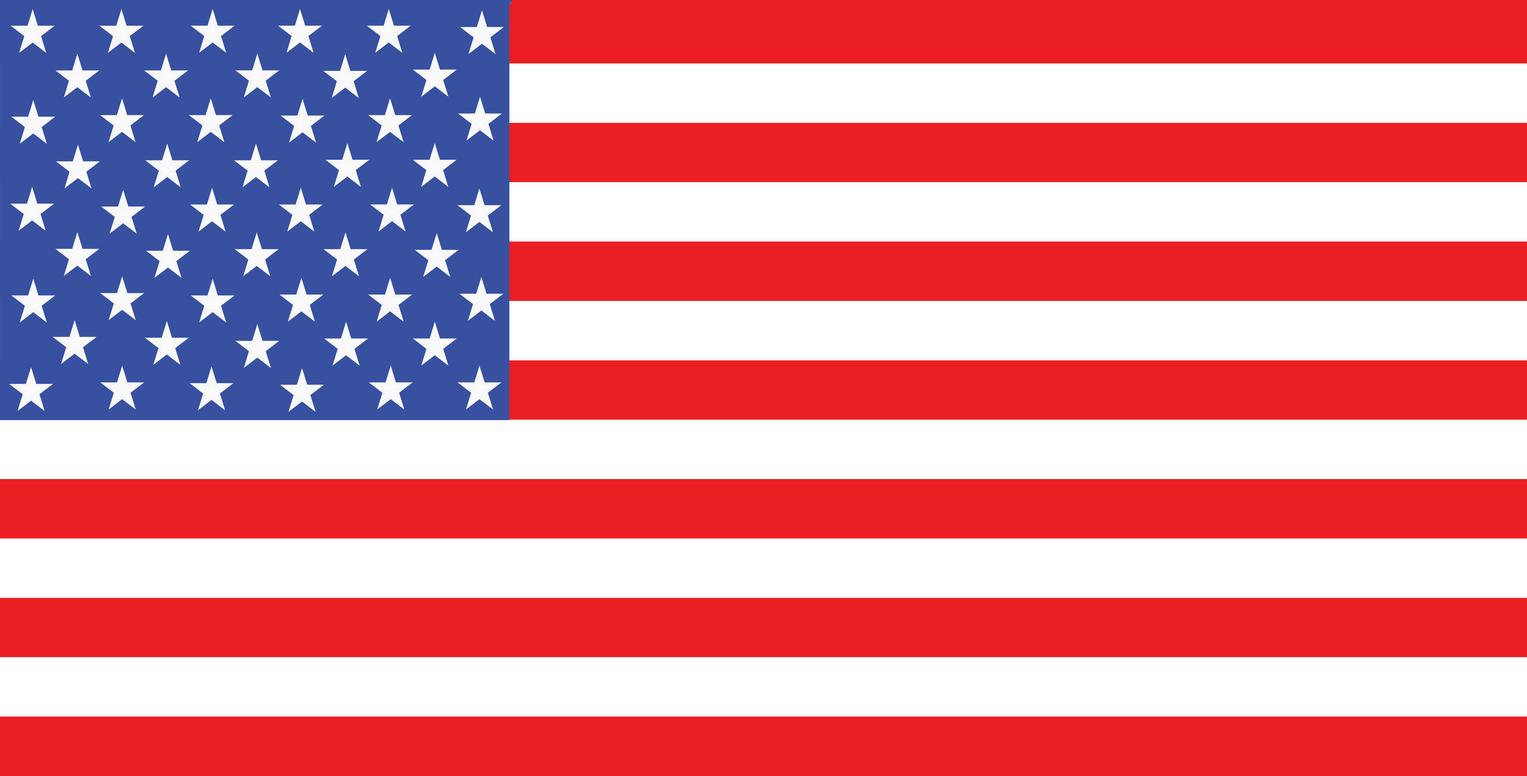
The bank’s choice and its impacts: Molly Wadham
As many of you would have seen when reading the news, the United States is currently in the process of imposing tariffs on countries such as Canada, as well as Europe The current state of global trade has led to uncertainty with many countries, with the Bank of England warning that this has intensified, holding interest rates at 4 5%
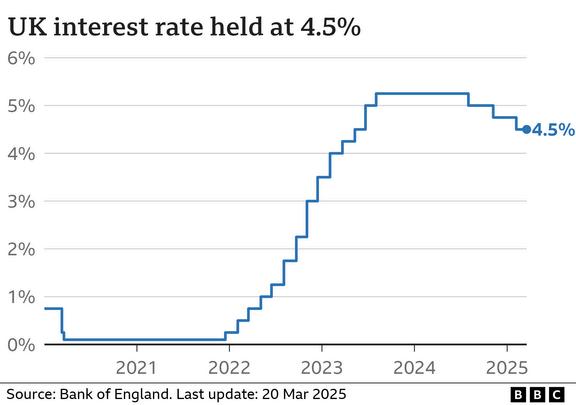
The interest rates in recent years have meant that people are having to pay more when borrowing money from the bank for mortgages or loans However, this is less likely to affect those with fixed-rate mortgages, which according to the BBC more than 8 out of 10 customers have These fixed rates deals may end, causing those on these terms to have to pay much higher repayments after the fixed rates have ended This will have a massive impact on the cost of living for those who are paying their mortgage as along with this, there is set to be an increase in prices for bills such as water and energy
It is believed that increasing the interest rates would help to battle inflation as it would mean that consumers are more likely to save rather than spend, causing demand for products to fall and ultimately causing prices to fall in order to entice consumers back to them. However, this idea can have a detrimental impact on the economy as businesses would be more likely to hold off on spending on new jobs and production
Furthermore, the Bank has forecast inflation to grow to 3 7% and halved its economic growth estimate. The government had made growing the economy its main goal, with Chancellor Rachel Reeves stating that there was “still work to do to ease the cost of living” and she was “determined to go further and faster” in order achieve the economic growth that the government has aimed to achieve However, despite this, shadow chancellor Mel Stride stated that inflation remaining above its target is due to the Budget given in October
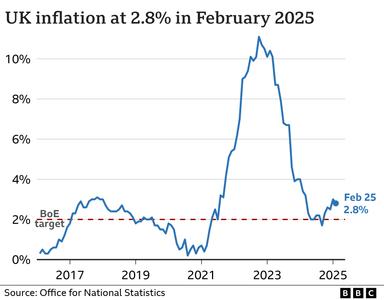
These imposed tariffs from the United States have sparked a trade war with the EU and Canada, with the President of the United States stating that these tariffs will help to boost the American industry, despite economists warning that this could lead to an increase in the prices for consumers. This would worsen inflation, something which banks have been trying to battle by hiking up the interest rates
Overall, the uncertainty in global trade and the current forecast of inflation indicates that the cost of living will not go for another couple of years. This is further impacted by the continued increase in these interest rates in order to battle the inflation, which would have an impact on aspects such as unemployment So the big question, will interest rates go down? Despite governor Andrew Bailey stating the Bank believes rates are “ on a gradually declining path”, the bank’s efforts to tackle the growing inflation indicates that interest rates are likely to stay on a similar path, with the Bank stating that

Working from home was a very popular way of working introduced in covid and lockdown This is because it is much more accessible for individuals who couldn't come into work and for the safety of at risk individuals. However many companies have continued to use these working at home policies to reduce costs and increase accessibility for at-risk individuals and people with mental and physical disabilities- it has also meant that more parents are able to go back to work as they can look after theirchildren at the same time
According to BBC news companies have started to begin to require staff to come into the office at an average of 5 days a week, this is because companies have started to struggle with the expenses of having offices and also people working at home- it also is an issue of the question if people are working to their full potential with all the distractions and needs which may be had at home. Companies such as Amazon have introduced this, however there have already been complaints about this policy

Benefits of working from home:
1. Working from home can be very beneficial since it means that workers can work from wherever they are, since if they live in the countryside and their office is in central London, they don't have to move and can afford to live someone cheaper and more convenient for them
2 Working from home can also be very beneficial for individuals with mental and physical disabilities as well as chronic illnesses since it means they can work from wherever they feel most comfortable and whatever is most accessible to them
3. Working from home also means that companies don't have to provide funding for people to commute, especially workers from the government who work in central London, and they go home at rush hour and can travel from lots of places.
Cost comparison:
To travel into London every day on a normal commute it would cost the average worker, £28.77 including return and other expenses

An example of this is, Just Eat for Business, who ask staff to be in the office three days a week, offer an allowance for free food every month
To commute into Nottingham every day it would cost an average of £6.01
Whereas working from home costs an average worker £9.41 a day
All of these prices can mean that the workers claim extra expenses to the company- therefore depending on where you live it may be cheaper to travel every day rather than working at home.
Overall working from home was a very beneficial way of continuing to work throughout the pandemic and became increasingly popular to individuals who had other needs, such as disabilities or were primary carers However is it now time to cut working from home, and return to only for the most vulnerable?



Lipton Iced Tea is a ready-to-drink tea brand made and distributed by the joint ventures between Unilever and PepsiCo It is typically sold in five flavours: lemon, peach, mint & lime, mango, and raspberry Citrus, watermelon, and mixed berry flavours are also available in some regions. Lipton Tea adopts a flexible segmentation strategy with a wide range of products it offers
Lipton uses geographic segmentation of markets and markets its products according to nations, states, regions, countries, cities, and neighbourhoods Rich taste, unique aroma, and distinctive flavour make Lipton one of the most in demand tea brands in the world market
Lipton ice tea has a market penetration pricing strategy for new markets or for when products launch This includes setting lower initial prices to reach many consumers quickly, the aim is to gain market share rapidly In markets with high competition, Lipton sets prices comparable to its competitors This is crucial to ensure consumers choose their products over competitors
Advertising


Lipton Ice Tea’s marketing strategy focuses on the brand as being a healthier alternative to sugary sodas while wanting to be refreshing and fit peoples lifestyle. It targets a demographic, particularly young adults According to a 2020 report by Grand View Research, the global ready-to-drink tea market was valued at $25 58 billion and is expected to grow at a compound annual growth rate (CAGR) of 6.2% from 2021 to 2028.
Lipton differentiates itself in the market with a wide range of flavours The brand continuously introduces new variants to fit consumer tastes, such as low sugar and caffeine-free options. This ensures they reach their target market, using product innovation
Lipton employs a mix of traditional advertising, such as TV and billboards, also digital marketing tools like social media, online ads, and influencer partnerships to reach many customers worldwide The brand engages in sponsorships and partnerships with events, celebrities, and influencers to promote their products and increase awareness of their brand Lipton also uses promotions like discounts and limited offers to ensure customer loyalty, increase sales, and repeat customers

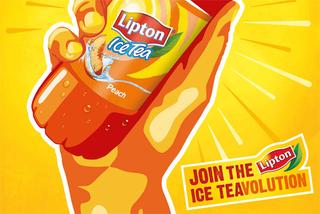
In recent years, Lipton has increased digital marketing to engage with its target audience The brand has a strong presence on social media platforms like Instagram and YouTube, where it shares content through influencer partnerships and sponsored content The #SipAndSmile campaign is an example of Lipton’s marketing strategy to increase customers engagement and brand loyalty Being one of the leaders in the tea market, Lipton has strong marketing strategies to maintain an advantage over its competitors This occurs through its diverse product offerings, innovative marketing strategies, and commitment to promoting their product on social media, Lipton continues to strengthen its position in the global ready to drink tea market, which overall increases there market shares meaning more overall profit for the brand
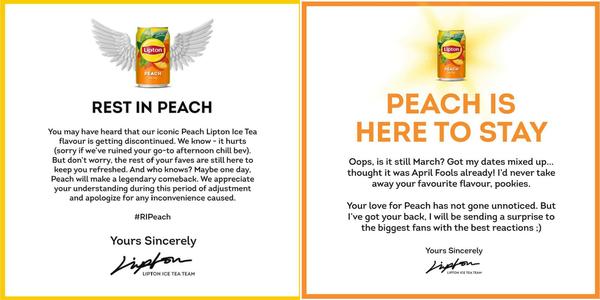
1
Tryasimplesavingchallenge:
For example, save £1 the first week, £2 the second and so on. By the end of the year, you’ll have over £1,300
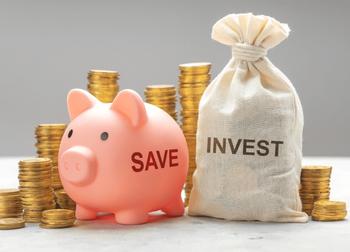
2
Followthe“50/30/20”rule:
50% - needs (school supplies, transport etc)
30% - wants (shopping etc)
20% - savings (future purchases)

3 4
Avoid impulse buying:
Use the “24 hour rule” if you still want it after a day, then consider it
Sell old clothes online (Depop, Vinted) or baby sitting, pet sitting tutoring etc
If you need help to start budgeting, you can use the template on the next page!
Jeeya, a Year 12 business student, has launched the "Mind Your Business" podcast, where she interviews a different guest each month to explore various aspects of the business world. In addition to these interviews, she collaborates with fellow business students to hold group discussions on current events in the industry. Here’s what she has to say about the podcast:
“Mind your business is a dynamic podcast that offers insightful commentary on current business trends and issues. In different episodes, I engage in discussions with my peers, debating and analysing the latest affairs in the business world. Additionally, I interview successful entrepreneurs and industry leaders, exploring their journeys, challenges, and strategies for success. ”

If you would like to listen to the podcast, scan the QR code below, or search “Mind Your Business” on Spotify !
